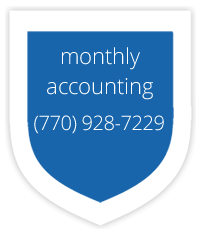3 Expert Tips To Buy Or Lease A Car For Business

The decision to buy or lease a car for business is not only about money. Yes, there are financial considerations, but as a business owner, the right decision is what is right for you. Let’s look at 3 expert tips to consider when deciding to buy or lease a car for business.
1. What You Get For Your Money
Buy:
Buying a vehicle assumes full ownership. You can use your vehicle any way you see fit.
Lease:
When you lease, you’re paying for the decline in value over the life of the lease – usually 3-5 years.
Pros & Cons:
If you care about ownership, buying is the best option. If you care little about ownership, and you prefer to have choices, leasing is a better option. You can still own the vehicle at a later stage, but you are able to drive a car you normally wouldn’t be able to afford to buy.
2. Money Out
Buy:
When you buy, you need to have a decent credit score and come up with a chunk of up-front cash. Beware that your payments will include a principle and interest portion. Therefore, the money out of your pocket each month is higher than leasing and it can restrict your business cash flow.
Lease:
When you lease a car, you need less upfront cash. Your payments will be lower because they are based on the vehicle’s expected decline in value. But, the danger with leasing is that there are strict contract guidelines. It’s difficult to terminate the lease. You’re bound by the original contract until the end of the period (or else you will incur agonizing termination fees). Because of these contract restrictions, a lease will require a higher credit score to obtain.
Pros & Cons:
Leasing is better if you have cash flow concerns or you have your money in other areas. Amazingly, leasing gives you the option to afford a more expensive vehicle. If what you drive is important in your industry, leasing is the right choice.
3. Excess Mileage & Wear ‘n Tear
Buy:
There’s no worrying about how much you drive it & no inspector that will grade you on your car’s upkeep. In fact, you can abuse it all you want. But, I highly recommend keeping your vehicle in good condition as it helps retain the resale/trade-in value.
Lease:
Lease vehicles are subject to mileage restrictions. If you are driving a lot or live anywhere in Atlanta, this is a terrible option. You’ll need to be mindful to do regular oil changes and tire rotations. That’s because you may incur extra fees for damage beyond normal wear ‘n tear.
Pros & Cons:
Determine first how many miles you expect to drive per year. If you drive a lot or travel to a work location, leasing is a risky choice. Your lease payment might look like a better deal, but once you add in the extra costs of excess mileage or wear ‘n tear, it might not be as cost effective.
Things to note:
- If your corporation owns or leases a vehicle, you may not use IRS standard mileage rates.
- Whether you buy or lease a car for business, and you’ve purchased it with non-business funds, you’re generally allowed to deduct the business cost of your vehicle using IRS standard mileage rate OR actual expenses.
- Leasing gives you the option to get a new vehicle ever 3 years or so.
When is the last time your CPA in Woodstock gave you advice on how to make your business more profitable?
 Having a tax and bookkeeping partner can help you make better business decisions. We, at Paragon Accounting & Tax Solutions, specialize in small business monthly accounting services. We work side-by-side with entrepreneurs and remove the burden of keeping track of all their business paperwork.
Having a tax and bookkeeping partner can help you make better business decisions. We, at Paragon Accounting & Tax Solutions, specialize in small business monthly accounting services. We work side-by-side with entrepreneurs and remove the burden of keeping track of all their business paperwork.
